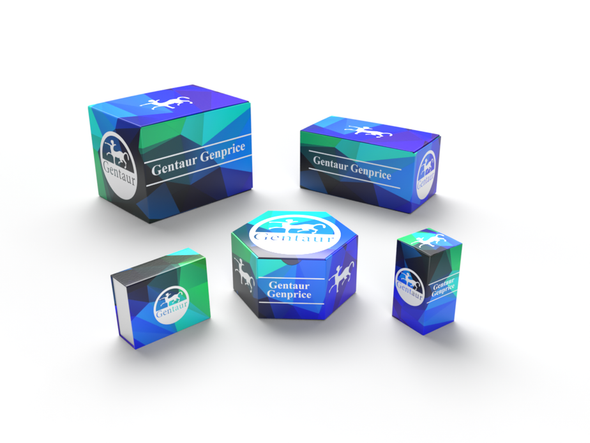Description
ADAM28 Antibody | 23-875 | Gentaur UK, US & Europe Distribution
Host: Rabbit
Reactivity: Human, Mouse, Rat
Homology: N/A
Immunogen: Recombinant fusion protein containing a sequence corresponding to amino acids 199-440 of human ADAM28 (NP_055080.2) .
Research Area: Cancer, Cell Cycle, Signal Transduction
Tested Application: WB
Application: WB: 1:500 - 1:2000
Specificiy: N/A
Positive Control 1: Raji
Positive Control 2: HT-29
Positive Control 3: A-549
Positive Control 4: THP-1
Positive Control 5: Mouse liver
Positive Control 6: Rat liver
Molecular Weight: Observed: 87kDa
Validation: N/A
Isoform: N/A
Purification: Affinity purification
Clonality: Polyclonal
Clone: N/A
Isotype: IgG
Conjugate: Unconjugated
Physical State: Liquid
Buffer: PBS with 0.02% sodium azide, 50% glycerol, pH7.3.
Concentration: N/A
Storage Condition: Store at -20˚C. Avoid freeze / thaw cycles.
Alternate Name: ADAM 28, MDC-L, MDCL, eMDC II, eMDCII, disintegrin and metalloproteinase domain-containing protein 28, epididymal metalloproteinase-like, disintegrin-like, and cysteine-rich protein II, epididymial metalloproteinase-like, disintegrin-like, and cysteine-rich protein II, epididymis secretory sperm binding protein, metalloproteinase-like, disintegrin-like, and cysteine-rich protein-L
User Note: Optimal dilutions for each application to be determined by the researcher.
BACKGROUND: This gene encodes a member of the ADAM (a disintegrin and metalloprotease domain) family. Members of this family are membrane-anchored proteins structurally related to snake venom disintegrins, and have been implicated in a variety of biological processes involving cell-cell and cell-matrix interactions, including fertilization, muscle development, and neurogenesis. The protein encoded by this gene is a lymphocyte-expressed ADAM protein. This gene is present in a gene cluster with other members of the ADAM family on chromosome 8. Alternative splicing results in multiple transcript variants.










